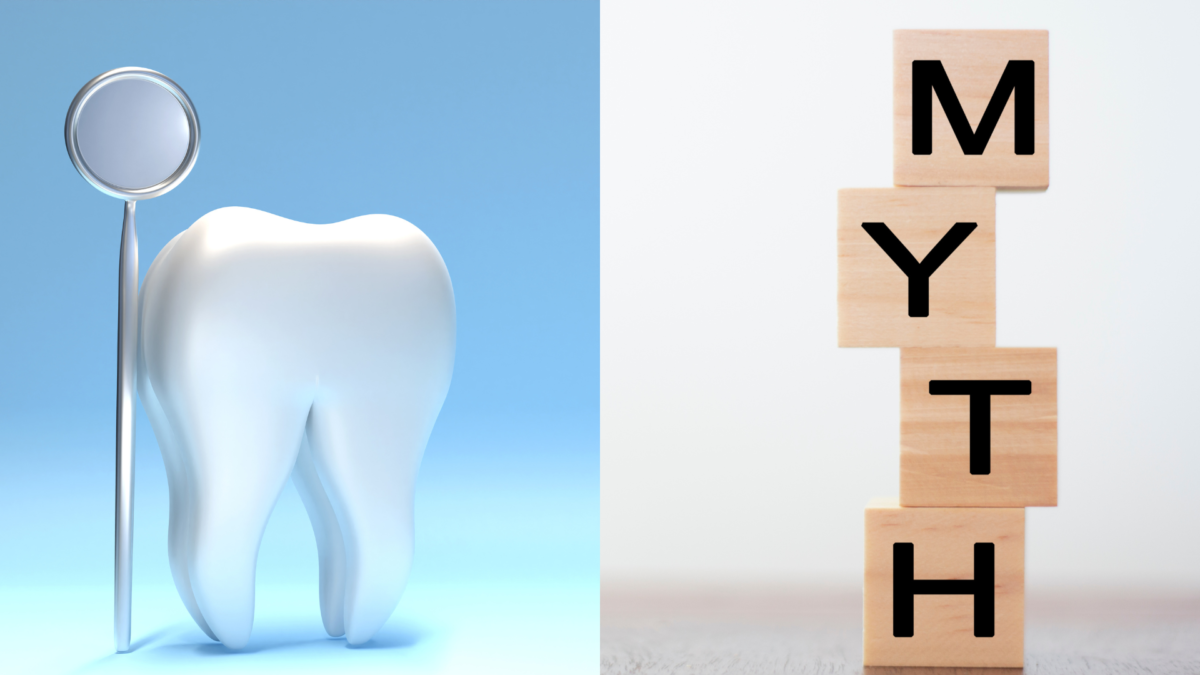
Oral health is surrounded by numerous myths and misconceptions that can mislead individuals and negatively impact their dental hygiene practices. This article addresses some of the most common dental myths, providing expert insights and clarifications to help you maintain better oral health.
Many people believe that brushing harder will remove more plaque and debris from their teeth. However, this is a misconception.
Clarification:
Brushing too hard can actually damage your teeth and gums, leading to enamel erosion and gum recession. It’s essential to use a soft-bristled toothbrush and gentle circular motions to clean your teeth effectively.
While sugar is often blamed as the primary cause of cavities, it’s not the only culprit.
Clarification:
Cavities are caused by bacteria that produce acid in your mouth, which then erodes the tooth enamel. While sugar provides food for these bacteria, other factors like poor oral hygiene and a lack of fluoride can also contribute to cavity formation. Regular brushing, flossing, and dental check-ups are crucial for preventing cavities.
Some believe that dental visits during pregnancy can be harmful to the mother and baby.
Clarification:
Pregnancy can increase the risk of gum disease and other dental issues due to hormonal changes. Regular dental check-ups and cleanings are safe and important during pregnancy to maintain oral health. Inform your dentist about your pregnancy, and they can take necessary precautions.
The assumption that white teeth equate to healthy teeth is widespread.
Clarification:
While white teeth can be a sign of good oral hygiene, they are not necessarily healthier. Teeth color can vary due to genetics, aging, and certain foods or medications. It’s more important to focus on overall oral health, including gum health and the absence of cavities, rather than just the color of your teeth.
Bad breath, or halitosis, is often linked solely to poor oral hygiene.
Clarification:
Although poor oral hygiene can cause bad breath, other factors such as dry mouth, certain foods, smoking, and underlying health conditions can also contribute. Regular brushing, flossing, and staying hydrated can help manage bad breath, but persistent issues should be discussed with a dentist or doctor.
Many people believe that losing teeth is an unavoidable part of aging.
Clarification:
Tooth loss is not an inevitable part of aging but rather the result of preventable conditions like gum disease and tooth decay. Maintaining good oral hygiene practices, regular dental visits, and a healthy diet can help preserve your teeth for a lifetime.
Some think that using mouthwash is an adequate substitute for brushing.
Clarification:
Mouthwash can be a helpful addition to your oral hygiene routine, but it should not replace brushing and flossing. Mouthwash can reduce bacteria and freshen breath, but brushing and flossing are essential for removing plaque and food particles from your teeth and gums.
It’s common to assume that dental visits are only necessary when you have a toothache or other issues.
Clarification:
Regular dental check-ups are vital for preventing problems before they become serious. Dentists can identify early signs of decay, gum disease, and other issues, providing timely treatment to maintain your oral health.
Understanding the truth behind common dental myths is crucial for maintaining optimal oral health. By debunking these misconceptions with expert insights, you can take better care of your teeth and gums, ensuring a healthier smile for years to come. Regular dental visits, proper oral hygiene, and a balanced diet are key components of good dental health.
#CommonDentalMyths, #DentalHealth, #DentalCare, #OralHygiene, #DentalMythsDebunked, #ExpertDentalInsights, #OralHealthFacts, #DentalKnowledge, #ToothCareTips, #DentalTruths
